Between living in today’s post-pandemic reality and an emerging climate crisis happening worldwide, keeping your family safe and sound is more timely than ever. For example, when planning for power outages, we need to plan for every possible scenario. As the head of your household, being prepared is your number one priority.
It’s all about hoping for the best while expecting the worst. As Americans, many of us are raised under the assumption that facing problems such as dealing with a power outage are the types of things that only people from other parts of the world go through. However, if you’ve been following the news at all this year, you know that’s not the case.
Most recently, back in February of this year, several major cities in the United States, ranging from Portland, Oregon, to Austin, Texas, experienced widespread power outages. Imagine being in the middle of one of the coldest months of the winter, with no access to electricity. That means no heat, no internet connection, no access to warm water, in which case you are practically stranded in your own home.
So, what can we do to prepare ourselves for such an event? With so much to think about, it can be overwhelming even to know where to start. From deciding on what survival foods you need to develop an emergency plan, it’s a good idea to cover all your bases. Luckily, we break it all down for you to let go of the worrying and focus your time and effort on creating the emergency plan that’s right for you and your family.
Steps to prepare for a power outage
1. Keep your non-perishables handy
The scary thing about power outages is that they are often hard to predict. So if you find yourself in one, you want to make sure that you and your household have enough food to last you through the storm. A good rule of thumb is to plan to have enough food for three days, and one gallon of water per person, per day.
When it comes to what types of food to keep handy, go for what’s healthy and nourishing to your body. Some examples of this include protein-dense foods like peanut butter or canned meats, canned fruits, and nuts or trail mix. In terms of storage, be sure to keep your non-perishables in a dry, cool space. If you happen to have any perishable foods that might still be good to consume, look into proper ways to store them.
2. Make your go-to bag
The worst thing that could happen is experiencing a power outage and then finding yourself and everyone and everyone else scrambling to find something in the dark or cold. Making a go-to bag is probably one of the most important things you can do for yourself and your household.
Everyone has specific needs, whether it’s different clothing sizes to dietary restrictions, so keep that in mind when deciding on what is crucial to bring along. Beyond just the individual needs, there are also the family’s.
Examples of what to include are listed below:
- Phone charger and portable battery
- Medication and first aid kit
- Extra set of clothes for extreme weather
- Pillows and blankets
- Flashlight and extra batteries
- Any comfort items for your kids
- Water bottles
- Pet food and supplies
- Non-perishable snacks
In other words, you aren’t necessarily packing for a vacation. You’re preparing your family in hopes of withstanding an emergency.
3. Stay informed with weather news reports for your region
While you may not be able to predict precisely when a power outage will strike, staying updated with the weather forecast in your region might be one of the closest things. Knowing when there is a storm on the way, or whether there may be a high chance of a blizzard depending on where you live, is probably one of the most innovative ways to protect yourself.
One practical and easy way to do this is through your smart devices. You can set up push notifications for your local news channel and weather apps so that you’ll receive information in real-time and be able to ensure better your awareness of how the climate may affect your situation.
4. Take advantage of surge protection in your home
When you experience a power outage, you lose access to a lot of your home’s appliances. When the power comes back on, you would expect everything that went out to turn right around on with it. Unfortunately, that’s not always the case. Power outages can damage your home’s electrical system and plug-in devices permanently. This is why you may want to consider homeowner’s insurance with surge protection.
Surge protection allows you to protect the data on your devices, not to mention the money you invested on each of them so that you can have one less thing to worry about when the power goes out.
5. Keep your car’s gas tank full
In the event of an emergency, the last thing you want to happen is to be stranded in your own home, with no way to contact anyone. Keeping your vehicle with enough gas to at the very least get you to the nearest gas station is probably the minimum you can do to ensure that your family is all set to leave.
While this may not be the best idea for every household, some people like to keep extra gallons of gasoline on reserve in their garage just in case. It is especially good to do if you live far from the nearest town or commercial center with access to a gas station or if you have a generator in your home.
6. Prepare for your specific medical needs
We all have different needs, especially when it comes to our health. So when you are packing your family’s emergency getaway bag, you must include general items, as well as the right supplies for each person’s individual needs. It could be anything from insulin for diabetes to an epi-pen to help with any allergic reactions.
7. Make sure your home’s smoke and carbon detectors are running properly
Carbon monoxide poisoning can be devastating and cause long-lasting damage to you and your family. Regardless of whether or not you feel that there is a high risk for a power outage in your area or not, smoke detectors often rely on a combination of electricity and battery power. So one thing you can do right away is set a reminder for yourself, whether it’s on your phone or through your personal computer, to make sure you switch out the batteries every six months.
8. Invest in a generator
Do you live far from town? Is someone in your family on dialysis? If there is any critical dependence in your family on electricity whatsoever, you should consider getting a generator for your home. It goes beyond just having comfort. It’s about being able to address critical needs for you and your family.
If you decide on obtaining a generator, make sure you use it a few times before there is ever an actual need. The last thing you want to do is read a manual in the dark or find out that something doesn’t work while everyone else is panicking and desperately relying on the generator to be up and running. So don’t wait until an emergency comes up, and make sure you have everything ready to go beforehand.
9. Bring your family’s favorites
In a crisis, the last thing you want to do is have to deal with scared and crying children. One of the best ways to mitigate this is by packing some of their favorite toys, blankets, or any items that give them a sense of comfort. In times of uncertainty, making sure your whole family feels that much more comfortable can make a world of difference.
So stock up on entertainment so that you can have something fun to keep everyone from your toddler to grandma happy. Be mindful of the energy consumption that certain toys or games might utilize, so avoid battery-powered or games that need to be charged. Instead, go for the timeless classics like board games, stuffed animals, or those favorite family books.
When it comes to preparing for a power outage, it’s all about finding a sense of safety for you and your family. While doing things like creating a go-to bag and keeping medical supplies handy are critical, having a home insurance provider like Hippo can prove highly valuable to your ability to sleep with a clean conscience.


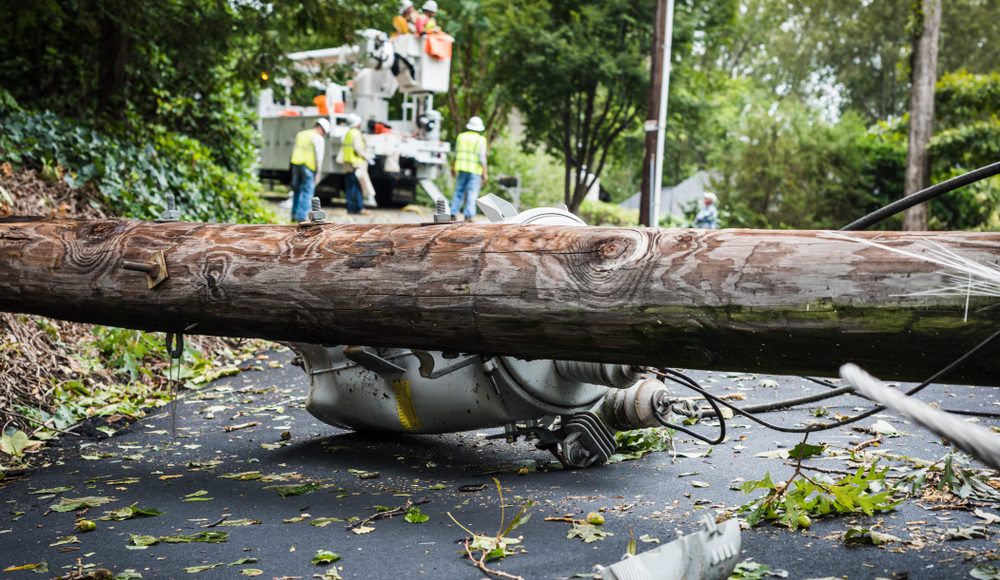


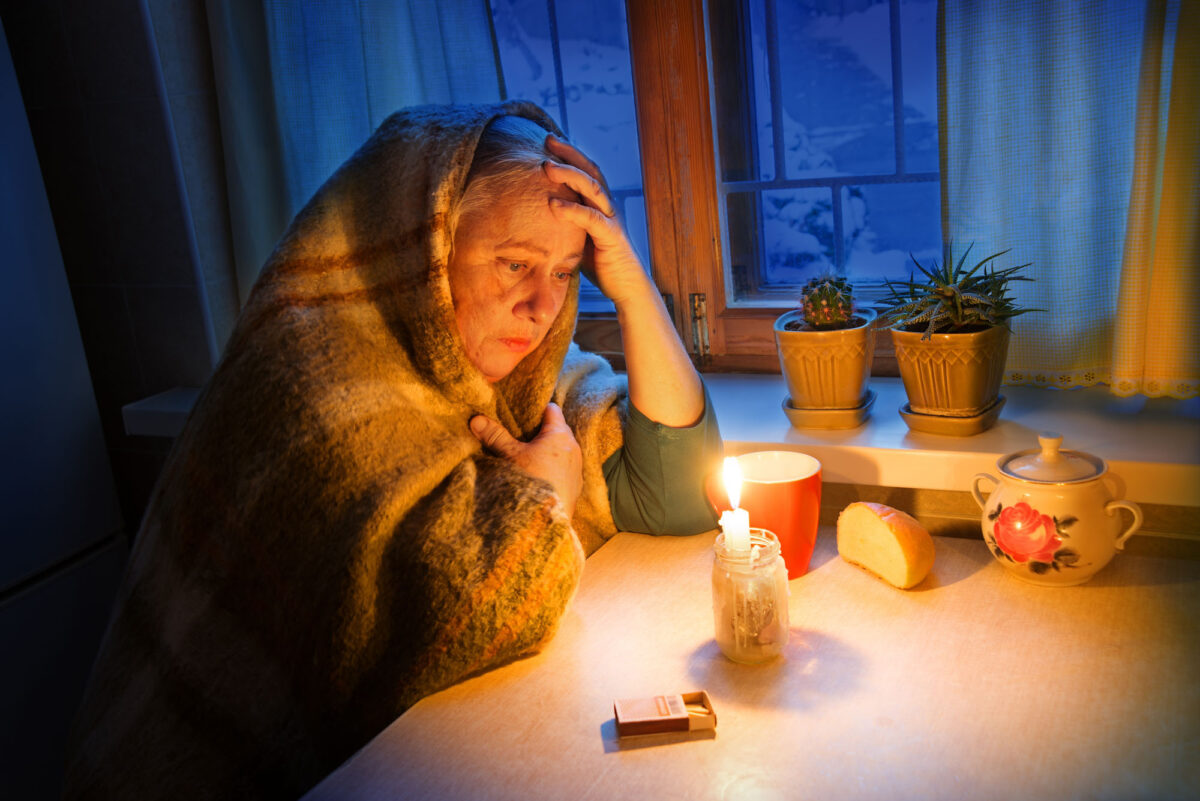
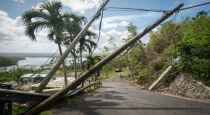
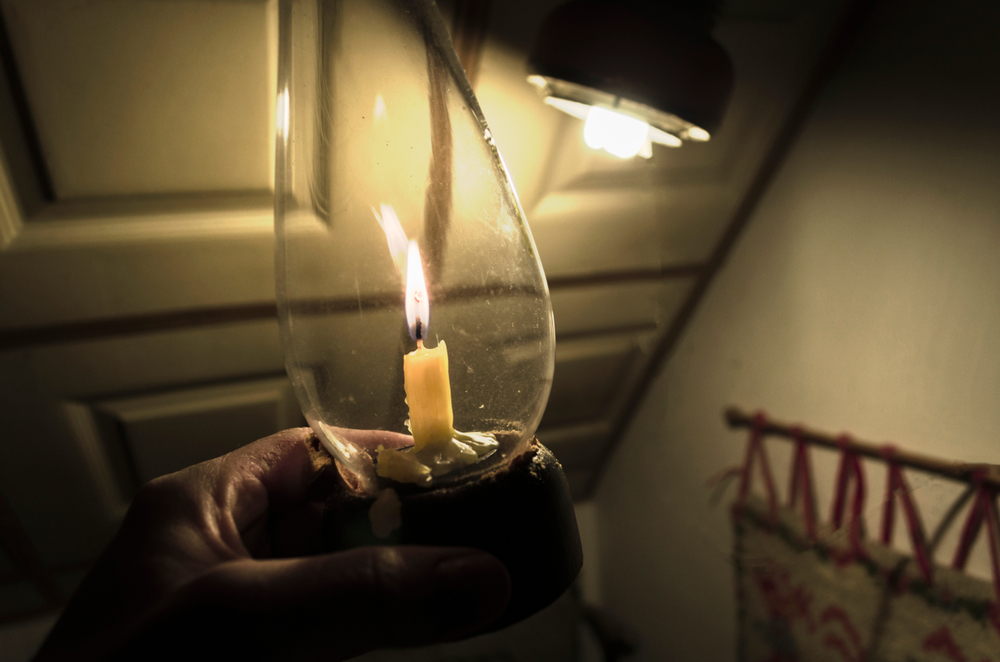
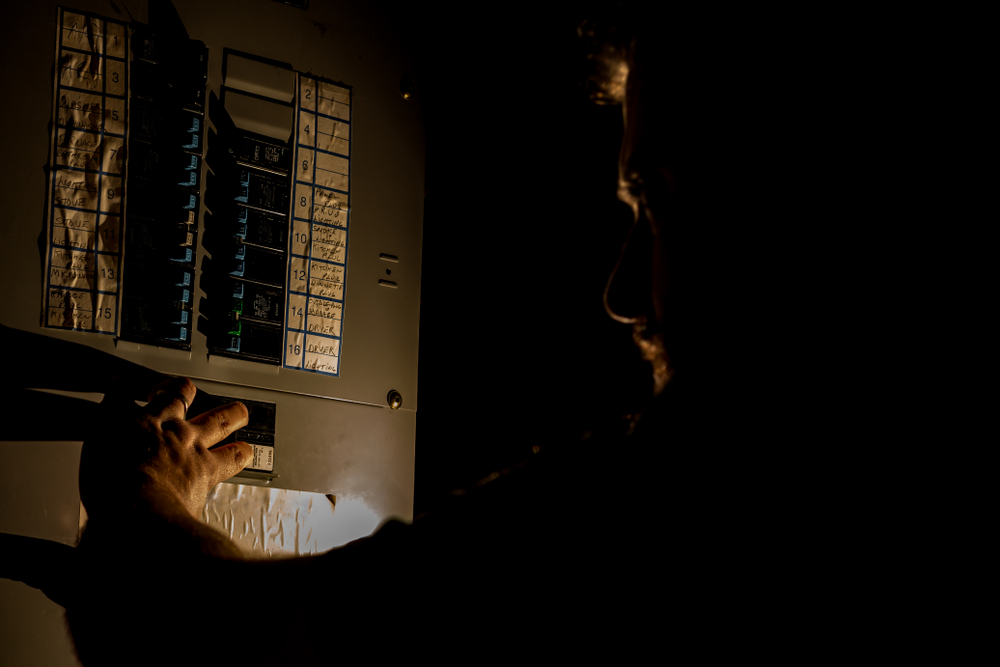


Tom MacGyver | October 15, 2021
|
“Keeping your vehicle with enough gas to at the very least get you to the nearest gas station is probably the minimum you can do to ensure that your family is all set to leave.
Chances are, the gas station is going to be without power as well. Keep your vehicle’s tank AT LEAST half full at all times. Also remember that with an inverter, your car can be used to generate AC for necessities in the house. Don’t go too big with one of these. The alternator in your car needs to be able to keep up with it. If it can’t, it’ll burn out trying! Keep 12V adapters available in the car so that you can charge things like cell phones while you’re running the car to power the inverter.
Skip | November 8, 2021
|
One of the best solutions for a power outage is an emergency solar/battery generator. I won’t name a brand, because I don’t want to be accused of huckstering. Those things are incredible, but they aren’t cheap. Expect to lay out around $2500 for a good, dependable, one. The icing on the cake is that they can be recharged with portable solar panels. The brand that I own comes with a single 100-watt, 12v solar panel. Additional solar panels can be purchased for around $300 on Amazon. The more solar panels you have, the faster the unit will recharge. Even better, you can draw 120v AC power from the unit while it is being charged from the solar panels. As long as the sun is shining, you have power. When the sun sets, you have the battery for power. Unlike a gasoline, diesel or propane-powered generator, these units are silent, produce no fumes, and can be used indoors. I used mine during a recent power outage. I ran an electric space heater – on the lowest setting – along with a lamp that held a 100 lumen LED bulb, for light, and the unit powered both for two hours and was only 40% discharged by the time my power was restored. I used two solar panels, and it recharged in about four hours. I have four solar panels in case I need to draw power while the unit is charging. NOTE; These things don’t have the capacity to run your entire house. However, you can run several appliances at a time, as long as you don’t exceed the unit’s output capacity. As a test, I powered a 55″ flat-screen TV, a DVD player, a DVR, and a surround-sound system, all at once, for three hours before the battery was drained. The best use for one of these is to keep your refrigerated food from spoiling. If you keep your refrigerator or freezer door closed as much as possible to keep the cold in, and run them for only an hour, or so, twice per day, one of these units will probably keep your food cold for several days on a single charge. If there’s someone in your home who’s on an oxygen machine, one of these generators will, literally, be a life-saver.
Karen R | February 28, 2022
|
Don’t wait for an emergency. You don’t have to be a prepper, but you should get ready for an emergency and you can do that on your own schedule. Fill your car up, make sure your flashlight works and you have extra batteries. How much food & water do you have that you can use without cooking. The 3 basics are food, water, shelter.
Eric Miller | April 8, 2022
|
I have a 12v TV which I plug into my jump starter during power outages. Fat candles which won’t tip over. A single burner propane stove from the hardware store. All items kept in a standard place for finding in the dark. A LED light of any kind for finding and setting up the other items. A wood heater and supply of wood. A water tank which can be made from storm water or sewer PVC piping, to fit in any odd place around the house. Like the tanks some people put on their RV roof racks.
Travelin On | April 8, 2022
|
Interesting this article comes out today. Yesterday our area hand an unplanned power outage. It lasted less than 12 hours but we used the day yesterday to live as though it were a permanent situation. We quickly learned what we could plug into our solar powered battery supply and what couldn’t and were thrilled to prove beyond any shadow of a doubt that what is critical is more than easily powered by the power supply. Having water stores on hand we had no problems. The water is from a well, so no power = no water. We used what supplies we had to heat water to boiling in solar powered water heaters outside and heated water over candle power inside. Being a morning that was freezing when we lost power, getting something warm to drink was pretty important. All in all, we had no problems powering what we needed to power, layering clothing for warmth, having water in storage was needed and with supplies already cooked from the day before we had plenty to eat yesterday. The fridge/freezer unit is double powered and so it transferred from electrical power to propane power when we lost power. The little chest freezer units we have for extra freezing space are dual electric powered, 12VDC/110Vac, and keeping them powered plus the computer, cell phone and some other USB powered items was no problem at all. It does pay to be prepared and when “emergencies” occur for others, we just shift modes of operation and keep right on going. We found yesterday’s experience very helpful and even exciting knowing we could continue to “survive” in that way just fine should we have needed to. Yes, we have a propane stove as well, so cooking isn’t a problem either as long as the propane lasts. Bathroom needs were also easily taken care of too. Days like yesterday help to provide an invigorating practice session for what we have prepared for should we need to make the change to full time. Attitude is going to be a huge difference between living or dying when things really go haywire. Our household provides full support of the person who already supported solar powered battery power units as well as smaller solar rechargeable USB power packs for USB chargeable items. They can be kept indoors, out of sight, and what others don’t see or know about isn’t questioned and folks don’t ask to borrow nor think to steal. When things go haywire, both are going to happen, the polite will ask to borrow first, but if denied, they’ll not even question and will quickly steal. The dishonest will simply steal first. Besides, solar panels can be set up where they aren’t all that obvious to keep power supplies recharged. We did that yesterday as we went about our normal daily activities and none of the neighbors even had a clue. Thankfully all plans were put in place long ago and the very few neighbors who are still here who may remember the planning activities of a few years ago have long since forgotten them. The sad stories we have heard from neighbors about yesterday’s occurrence have been sad, but are the result of those who don’t believe they should plan and that others are responsible to make their life as comfortable and easy as they personally desire it with no effort on their part. Yesterday there were people in the area about ready for any price to get a hot cup of coffee. They weren’t even thinking about food.
MaxxSr | October 16, 2022
|
I have boon docked several times (6 times) with Friends and my wife. Some have campers or tent some sleep in thier cars. One couple sleep on a open flat trailer. put up their tent on it and its better than the wet/damp ground. Another guy put up a canopy over his pick up bed and sleeps in the bed of his pick up. We gather to go ATV riding together. My self I can not tow my camer and the ATV’s at the same time. I camp in a enclosed Snowmobile Trailer. Put the ATV’s out side for the weekend. our make shift camper. I did insulate most of it but if it got colder would have to do the floors and complete the walls properly. With out getting into A ton of details. This adventure has tought me a ton of things, Things I need and several I didnt. I am the type that would carry to much and not need it. In this case doesnt hurt anything but if I had to back pack. I would be in a hurting situation. Camping with others is also important, No one in the group goes with out. we all pitch in to help with what ever arises. – I guess what im trying to say is – go camping. it will be the best education you can get. Camping with out your camper. Camper is only a home away from home. Be kind I did my best here. GOD Bless